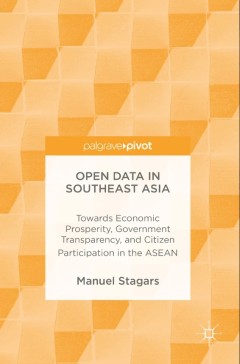Filter by

A Dictionary, Practical, Theoretical and Historical, of Commerce and Commerci…
A friend, correspondent and intellectual successor to David Ricardo, John Ramsay McCulloch (1789–1864) forged his reputation in the emerging field of political economy by publishing deeply researched articles in Scottish periodicals and the Encyclopaedia Britannica. From 1828 he spent nearly a decade as professor of political economy at the newly founded University of London, thereafter becom…
- Edition
- -
- ISBN/ISSN
- 9781139941785
- Collation
- -
- Series Title
- Cambridge Library Collection - British and Irish History, 19th Century
- Call Number
- -

Towards a General Theory of Deep Downturns Presidential Address from the 17t…
Joseph Stiglitz examines the theory behind the economic downturns that have plagued our world in recent times. This fascinating three-part lecture acknowledges the failure of economic models to successfully predict the 2008 crisis and explores alternative models which, if adopted, could potentially restore a stable and prosperous economy.
- Edition
- -
- ISBN/ISSN
- 978-1-137-58691-9
- Collation
- -
- Series Title
- -
- Call Number
- -

A 'Short Treatise' on the Wealth and Poverty of Nations (1613)
A Short Treatise on the Wealth and Poverty of Nations presents, for the first time, an English translation of Antonio Serras Breve Trattato (1613), one of the most famous tracts in the history of political economy.
- Edition
- -
- ISBN/ISSN
- 9781843317708
- Collation
- -
- Series Title
- -
- Call Number
- -

Open Data in Southeast Asia
This book explores the power of greater openness, accountability, and transparency in digital information and government data for the nations of Southeast Asia. The author demonstrates that, although the term “open data” seems to be self-explanatory, it involves an evolving ecosystem of complex domains. Through empirical case studies, this book explains how governments in the ASEAN may harv…
- Edition
- 1
- ISBN/ISSN
- 978-3-319-32169-1
- Collation
- XXV, 192
- Series Title
- -
- Call Number
- -

Online Algorithms for the Portfolio Selection Problem
Robert Dochow mathematically derives a simplified classification structure of selected types of the portfolio selection problem. He proposes two new competitive online algorithms with risk management, which he evaluates analytically. The author empirically evaluates online algorithms by a comprehensive statistical analysis. Concrete results are that follow-the-loser algorithms show the most pro…
- Edition
- 1
- ISBN/ISSN
- 978-3-658-13528-7
- Collation
- XXVI, 185
- Series Title
- -
- Call Number
- -

Immigration and Housing Rents: Evidence from German Reunification
This work exploits the natural experiment provided by the unexpected disintegration of socialist East Germany to study the impact of the mass immigration of East Germans on housing rents in West German metropolitan areas. Using a spatial correlation approach, annual district-level migration data for 1991 and 1992 and unique rental price indicators from Germany’s major regional property market…
- Edition
- -
- ISBN/ISSN
- 978-3-658-12060-3
- Collation
- XVI, 115
- Series Title
- -
- Call Number
- 330 IMM k

Financial Econometrics and Empirical Market Microstructure
In the era of Big Data our society is given the unique opportunity to understand the inner dynamics and behavior of complex socio-economic systems. Advances in the availability of very large databases, in capabilities for massive data mining, as well as progress in complex systems theory, multi-agent simulation and computational social science open the possibility of modeling phenomena never be…
- Edition
- -
- ISBN/ISSN
- 978-3-319-09946-0
- Collation
- VIII, 284
- Series Title
- -
- Call Number
- -

The Impact of Mobile Phones on Poverty and Inequality in Developing Countries
This book investigates at both the micro- and macroeconomic levels the impact of mobile phones on poverty and inequality in developing countries. To gauge the effects of mobile phones on these aspects, the author refers to the standard concept of technology adoption and also analyses the actual utilization of mobile phones as a means of communication and the degree to which they have supplanted…
- Edition
- 1
- ISBN/ISSN
- 978-3-319-27368-6
- Collation
- VIII, 93, 4 illustrations in colour
- Series Title
- SpringerBriefs in Economics
- Call Number
- -

ICT Diffusion in Developing Countries: Towards a New Concept of Technological…
This book provides an extensive overview of the diffusion of Information and Communication Technologies (ICTs) in developing countries between 2000 and 2012. It covers issues such as country-specific ICT diffusion patterns, technological substitution and technological convergence. By identifying social, economic and institutional prerequisites and analyzing critical country-specific conditions,…
- Edition
- -
- ISBN/ISSN
- 978-3-319-18253-7
- Collation
- XI, 308
- Series Title
- -
- Call Number
- 330 ICT

The Future of Work in Information Society
This book investigates the question as to whether technological developments will ultimately mean the end of work and, if so, what the consequences will be. The author addresses this question from the perspective of a technologist well versed in econometrics and game theory, and argues that it is not technology alone that could lead to the end of work, but its utilization by the capitalist syst…
- Edition
- 1
- ISBN/ISSN
- 978-3-319-33909-2
- Collation
- X, 72
- Series Title
- SpringerBriefs in Economics SpringerBriefs in Economics
- Call Number
- -
 Computer Science, Information & General Works
Computer Science, Information & General Works  Philosophy & Psychology
Philosophy & Psychology  Religion
Religion  Social Sciences
Social Sciences  Language
Language  Pure Science
Pure Science  Applied Sciences
Applied Sciences  Art & Recreation
Art & Recreation  Literature
Literature  History & Geography
History & Geography